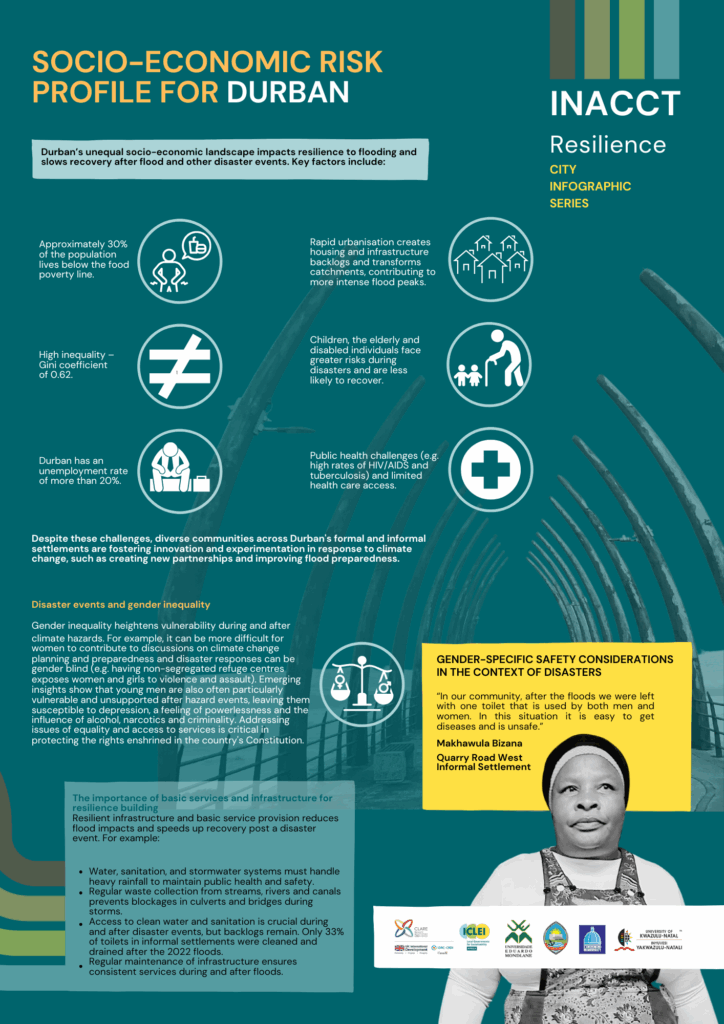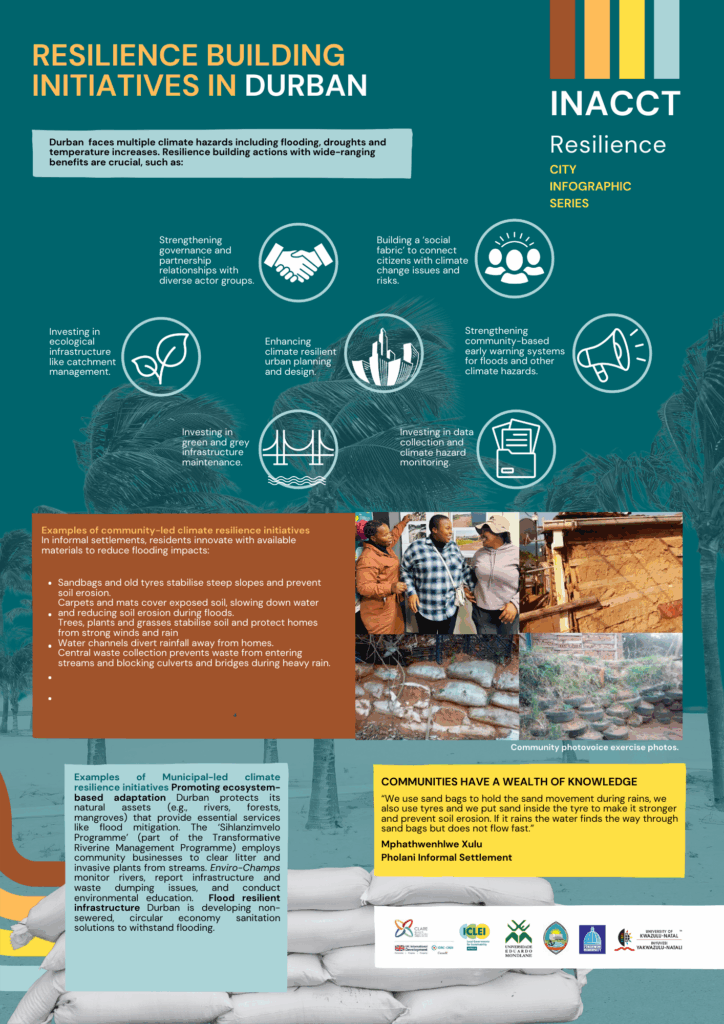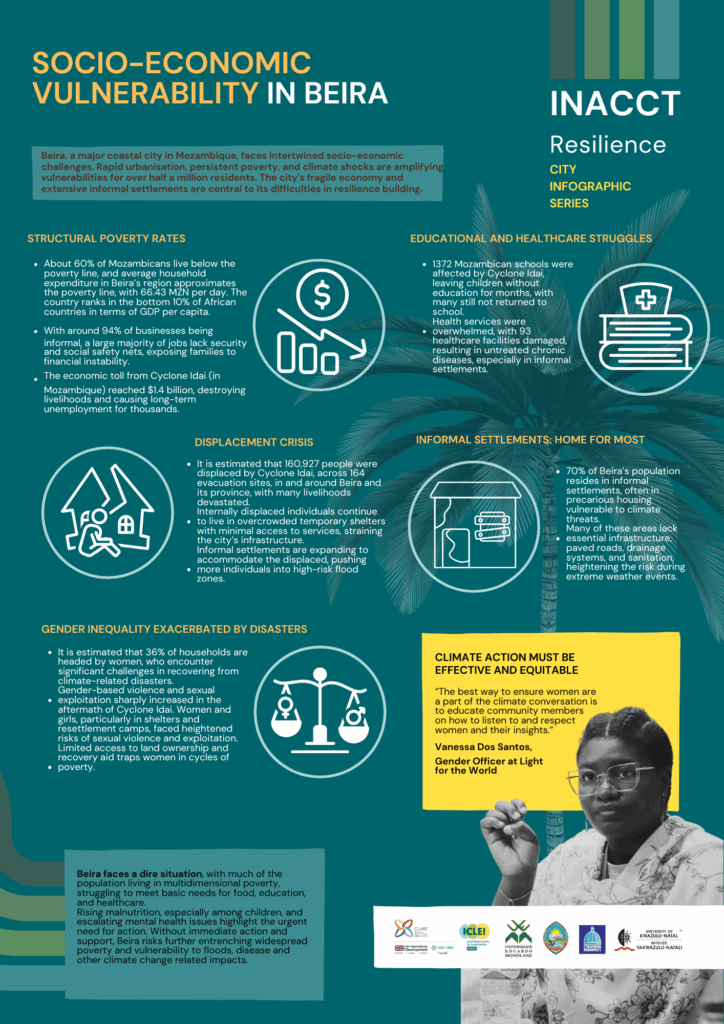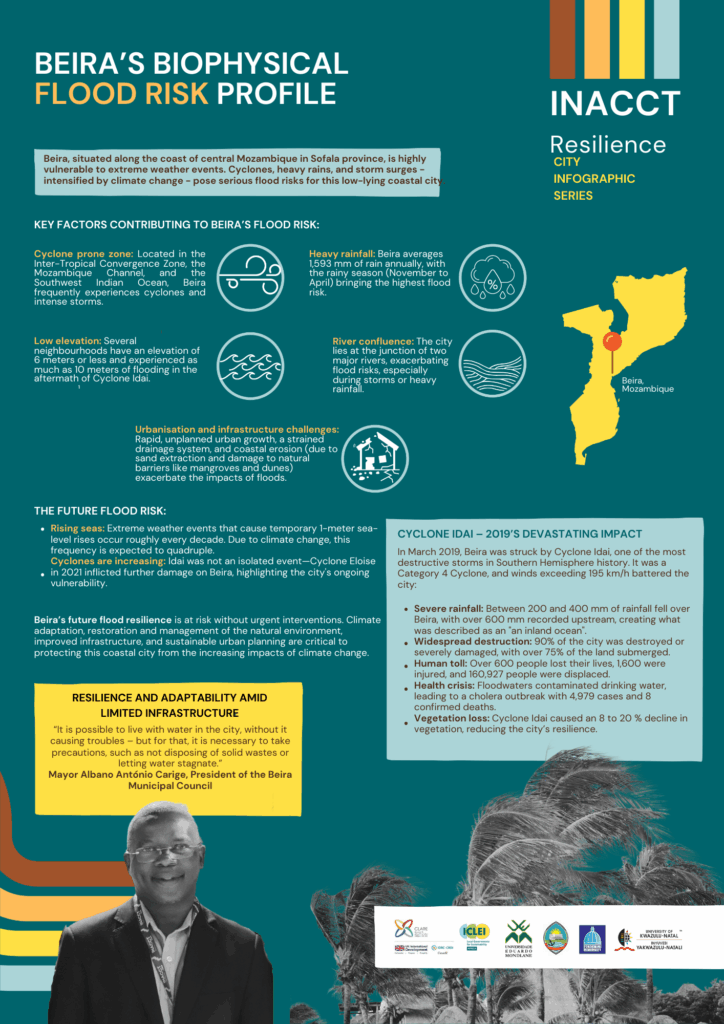Co-creating solutions for enhancing resilience in informal settlements
How do I strengthen early warning systems to minimise impacts?
How do I strengthen community-based flood early warning systems to minimise impacts?

Flood Early Warning Systems are critical tools for reducing loss of life and livelihoods during flood events. There is, however, growing recognition of the need to complement technical warnings with nuanced local knowledge. Doing so helps improve not only the accuracy of warnings, but also how the location, scale, and potential impacts of flood risks are understood by communities.
Informal settlements experience particularly severe impacts from flooding—impacts that are intensified by climate change, high levels of exposure and vulnerability, and social and political marginalisation within disaster risk management policy and practice. In these contexts, the effective functioning of community-based flood early warning systems (CBFEWS) is especially critical. While some localised examples of CBFEWS exist, they have rarely been scaled or embedded within wider urban systems.
This section presents case study examples of CBFEWS from the cities of Durban and Beira. It shares key lessons from these experiences, with a particular focus on integrating local and technical knowledge within early warning systems, and offers recommendations for developing CBFEWS in vulnerable areas in other cities.
Community-based flood early warning systems are vital in high-risk informal settlements. Lessons from Durban and Beira show that integrating local and technical knowledge can strengthen early warning and reduce flood impacts.

Durban’s CBFEWS
This document consolidates Durban’s existing CBFEWS experience in the Palmiet Catchment and shares reflections on what this experience means for upscaling CBFEWS in other locations

Flood early warning systems in Beira
This document shares the elements of flood early warning systems that exist in vulnerable informal settlements in Beira.

Piloting CBFEWS upscaling in Durban
This document shares the approach Durban adopted to test CBFEWS upscaling in additional settlements in Durban and documents the outcomes and learnings.

Learnings and recommendations for upscaling CBFEWS
This document consolidates the CBFEWS experiences to date across Durban and Beira, and provides practical guidelines and recommendations on how to upscale CBFEWS in other areas.
CLARE is a £110m, UK-Canada framework research programme on Climate Adaptation and Resilience, aiming to enable socially inclusive and sustainable action to build resilience to climate change and natural hazards. CLARE is an initiative jointly designed, funded and run by the UK Foreign Commonwealth and Development Office and Canada’s International Development Research Centre. CLARE is primarily funded by UK aid from the UK government, along with the International Development Research Centre, Canada.
